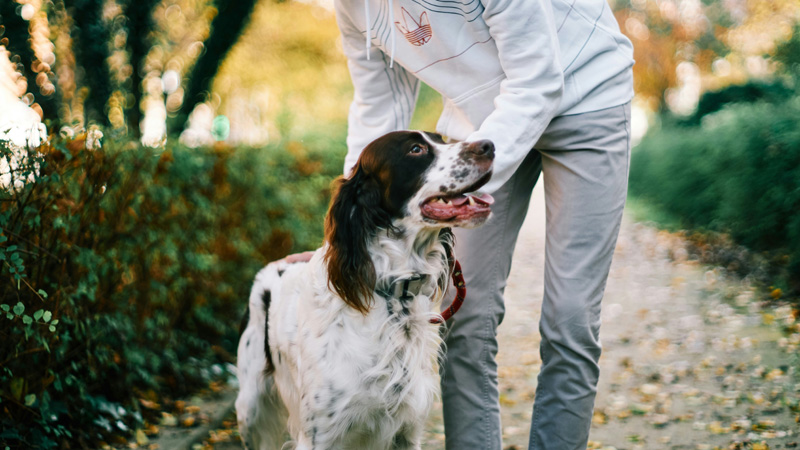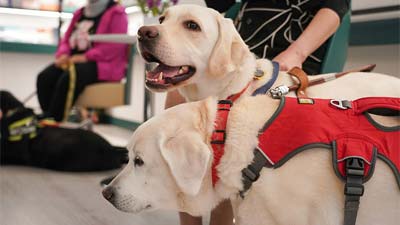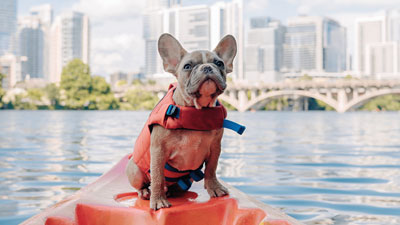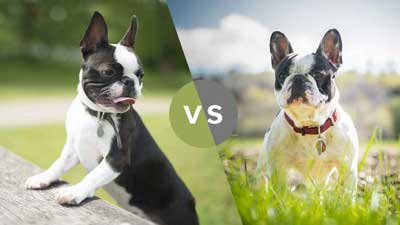- Size
- Smallest
- Small
- Small to Medium
- Medium
- Large
- Giant
- Characteristics
- Smartest
- Hypoallergenic
- Fluffy
- Best Guard
- Best Family
- Best for Kids
- Low Shedding
- Healthiest
- Police Dogs
- Most Calm
- Quietest
- Color
- White
- Black
- Grey
- Brown
- Blue
- Red
- Coat
- Hairless
- Short
- Long
- Origin
- Japan
- China
- Australia
- Germany
- Italy
- United States
- France
- Group
- Hound
- Terrier
- Herding
- Toy
- Working
- Sporting
Rules for Dogs in France: Here’s What You Need to Know

Photo by Eddie Junior on Unsplash
France, renowned for its exquisite cuisine, rich history, and picturesque landscapes, also holds a special place for our four-legged friends. Dogs are cherished companions in French society, often seen accompanying their owners to cafes, parks, and even workplaces. However, like any country, France has specific rules and regulations governing the behavior and treatment of dogs.
In this comprehensive guide, we will explore the rules for dogs in France, covering everything from registration and identification to leash laws and pet-friendly establishments. Understanding these rules will help both residents and visitors navigate dog ownership in the country smoothly and responsibly.
Registration and Identification
Registering and identifying dogs is mandatory in France, and microchipping is the most commonly used method of identification. In addition, owners are required to register their dog's microchip number with a national database, such as I-CAD, to enable swift identification and reunification in case the pet is lost or stolen. It is also an essential step in promoting responsible dog ownership.
What is I-CAD?
I-CAD, which stands for "Identification des Carnivores Domestiques" or Identification of Domestic Carnivores, is the largest pet database dedicated to carnivorous pets in France and Europe. It serves as the central repository for complete data on the identification of animals such as dogs, cats, and ferrets.
It's important for pet owners to keep their information up to date in the I-CAD database, as it plays a crucial role in reuniting lost pets with their owners. In case a pet goes missing, their identification can be easily traced back to the owner through the database.
The "Category" System
France has a categorization system for certain dog breeds, often referred to as "dangerous breeds." These breeds are classified into two categories:
Category 1: This includes breeds that are considered dangerous, such as American Staffordshire Terrier, Pitbulls, and Mastiffs. Owners of dogs in this category must comply with strict regulations. These regulations typically include muzzling the dog in public places, keeping them on a short leash, and obtaining specific liability insurance.
Category 2: This includes breeds that are considered guard dogs. Examples of Category 2 breeds include Rottweilers, Dobermans, and Tosa Inus. Like Category 1 dogs, those in Category 2 must also adhere to specific regulations. This includes muzzling the dog in public areas, keeping them on a short leash, and obtaining liability insurance.
Moreover, owners of guard dogs falling under Category 2 breeds have an additional responsibility to contain their dogs within secure and properly fenced areas. The fence must have a minimum height of 2 meters to ensure the safety and security of the guard dog. This requirement aims to prevent any potential incidents involving guard dogs and maintain a safe environment for everyone.
Leash Laws and Public Spaces
In France, it's mandatory to have dogs on a leash in most public spaces, including parks and streets. This law is in place to ensure the safety of both dogs and other people. However, there are designated areas, known as "dog-friendly zones" or "dog parks," where dogs are allowed to roam off-leash and socialize with other dogs. Be sure to respect local regulations and signs indicating leash requirements in public areas.
Waste Disposal and Cleanliness
Responsible dog ownership in France includes cleaning up after your pet. It is essential for dog owners to carry waste bags while walking their dogs and to promptly pick up any waste they produce. Leaving dog waste behind is not only disrespectful but also against the law. It can be considered a public nuisance and pose health risks to others.
In many cities, you will find specific dog waste bins or poop scoops provided for the proper disposal of dog waste. These bins are usually marked and conveniently located in parks, public areas, and walking paths. It is encouraged to use these designated bins or take the waste home for disposal in your own waste bin.
Public Transport and Accommodation
France's public transport system generally allows dogs on board trains and buses, as long as they are on a leash and muzzled if required based on the breed category. For example, dogs are allowed on all public transport in Paris, including the metro, subway, commuter trains, and buses. However, there are some guidelines for dogs:
- Service dogs can travel for free on all forms of transport.
- Large dogs typically require a ticket to travel on public transport.
- Small dogs can travel in a bag or dog carrier and do not need a ticket.
Please note that specific rules and regulations may apply, and it's always a good idea to check with the transport authority for any updates or changes regarding pet policies.
When it comes to accommodation, many hotels and vacation rentals in France do welcome pets. However, it's important to verify the pet policy with the establishment beforehand. Some places may have certain restrictions or additional charges for accommodating pets. It's always best to communicate with the hotel or rental owner to ensure a smooth and enjoyable stay for both you and your furry friend.
Pet-Friendly Establishments and Activities
France is known for its pet-friendly culture and offers a wide range of pet-friendly establishments and activities. Dog owners can enjoy taking their well-behaved pets to cafes, restaurants, and some shops that are happy to welcome them. It's always a good idea to check with the establishment beforehand to ensure they allow dogs and to understand any specific guidelines they may have.
Moreover, France also has specific areas on some beaches where dogs are allowed, typically during certain times of the year. This allows dogs and their owners to enjoy some fun in the sun together. Again, it's essential to check the specific regulations and timings for dog-friendly areas at each beach.
Additionally, many cities in France provide dog training schools, agility clubs, and organize dog-friendly events. These initiatives promote responsible pet ownership, provide opportunities for dogs to socialize and exercise, and help create a sense of community among dog owners. These activities can be a great way to bond with your pet, learn new skills, and meet fellow dog lovers.
Veterinary Care and Health Requirements
Providing routine veterinary care for your dog is essential in France, as it is in many countries. This includes vaccinations, regular check-ups, and preventive treatments for parasites to ensure your dog's health and well-being.
Keeping records of your dog's vaccinations and health history is important, not only for your own reference but also for compliance with any regulations or requirements that may arise.
If you are traveling to France with your dog, especially from a non-European Union country, you may be required to obtain a health certificate from your veterinarian. This certificate typically includes information about your dog's current health status, vaccinations, and sometimes specific treatments that may be necessary for entry into France.
Conclusion
Navigating the rules for dogs in France requires a blend of legal compliance, cultural sensitivity, and responsible pet ownership. These rules aim to create a safer environment for both dogs and the community, minimizing potential risks and ensuring the ongoing enjoyment of dog ownership in France.
Let us all work together to foster a harmonious coexistence by respecting and following these rules, thereby contributing to the overall well-being and safety of our furry companions and society as a whole.
You May Also Like
 Help & AdvicePet-Friendly National Parks: The Ultimate Guide
Help & AdvicePet-Friendly National Parks: The Ultimate Guide Dog BreedsBreed Guide: Choosing the Best Service Dog Breeds
Dog BreedsBreed Guide: Choosing the Best Service Dog Breeds Help & AdviceTraveling with Pets: Tips for Stress-Free Journeys
Help & AdviceTraveling with Pets: Tips for Stress-Free Journeys Breed ReviewsThe 5 RAREST French Bulldog Colors
Breed ReviewsThe 5 RAREST French Bulldog Colors Breed ComparisonBoston Terrier vs. French Bulldog: Which Is Better?
Breed ComparisonBoston Terrier vs. French Bulldog: Which Is Better? Breed ComparisonPug vs. French Bulldog: Which is Better for Families?
Breed ComparisonPug vs. French Bulldog: Which is Better for Families?